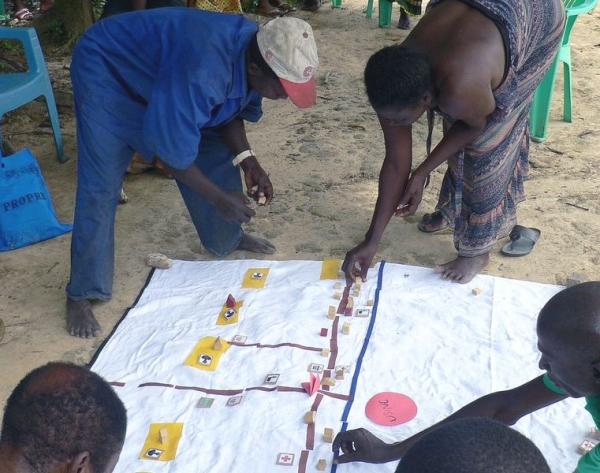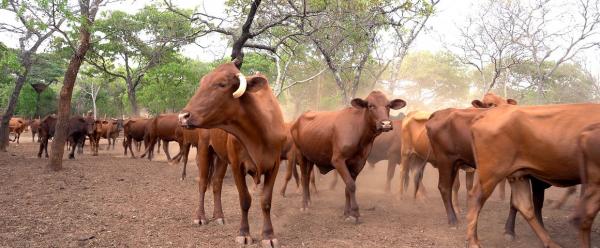
Production and conservation in partnership in southern Africa
How can the sustainable development of rural populations be combined with biodiversity conservation in zones of substantial interaction between people and nature?

Young child eating a fresh (boiled) corn cob, harvested the previous day, as an afternoon snack. © CIRAD, A. Perrotton
Production and conservation in partnership in southern Africa – RP‑PCP
CIRAD and its African and French partners have developed a research platform in partnership, formalized in 2007. The aim of the platform (“Research Platform – Production & Conservation in Partnership” – RP-PCP) is to strengthen regional and national skills to more effectively foster coexistence between local lifestyles and biodiversity conservation in areas with strong interfaces between protected areas and communal areas. To date, over 140 students from Zimbabwe and the region (Master’s and PhD) have completed, or are in the process of completing, their degrees.

How can the sustainable development of rural populations be combined with biodiversity conservation in zones of substantial interaction between people and nature?

The project is being implemented at eight sites in Africa, the Caribbean and the Pacific, and aims to protect both wildlife and the food security of local people. CIRAD is working in three countries: Gabon, Zambia and Zimbabwe.

The LIPS-Zim project, funded by the European Union, has just been officially launched. As part of a consortium of four partners, CIRAD will work to strengthen animal disease surveillance and control systems, as well as to develop more resilient livestock production systems. The goal is to reduce livestock mortality, for more productive livestock systems that are adapted to the increase in the severity of drought events due to climate change.
This project strengthens the sustainable management of four sites inside transfrontier conservation areas in southern Africa (Zimbabwe, Botswana and Mozambique) through local biodiversity-friendly development, whilst changing the role and attitudes of communities in the collective management of those areas.
Find out more:
ProSuLi project
Project fact sheet
One Health at the heart of conservation and development projects
Project press release
Podcast | Cohabiter avec la faune sauvage - Faire vivre la biodiversité (3/6)
In french
A video reviewing the ProSuLi project
Zimbabwe is strengthening its diagnostic capacities for plant, animal and zoonotic diseases.
See the Pacman project
Cooperation and partnerships
CIRAD in Zimbabwe has a framework agreement with the Ministry for Lands, Agriculture, Fisheries, Water, Climate and Rural Development, which enables it to undertake operations funded by the French Ministry for Europe and Foreign Affairs (MEAE), Agence française pour le développement (AFD), European Union (EU), the ACP secretariat, the Agence nationale de la recherche française (ANR) and ANRS (emerging infectious diseases).
CIRAD maintains strong and sound partnerships with local universities, Zimbabwe National Parks, along with international partners such as IRD, CNRS, Pasteur Institute, University of Pretoria and Nelson Mandela University (South Africa), Eduardo Mondlane University (Mozambique), University of Zambia and the Okavango Research Institute (Botswana).